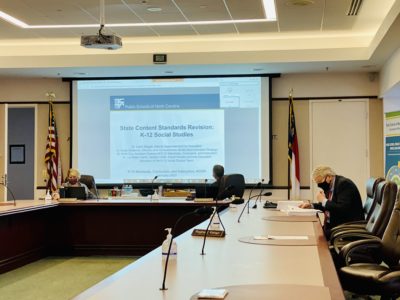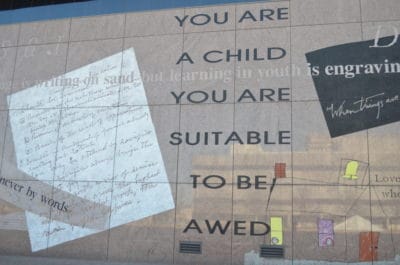After taking input from new State Superintendent Catherine Truitt, the State Board of Education heard today a revision to recommended social studies standards for the state.
The standards the Board heard were revised from what Board members saw earlier this month. In particular, the revisions changed terminology referenced in standards and supporting documents that some on the Board found controversial in early January.
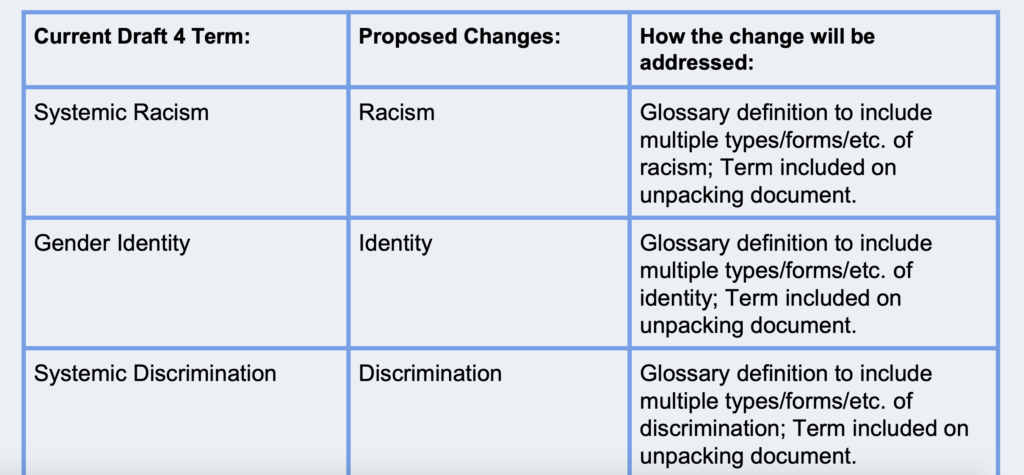

Republican Lt. Gov. Mark Robinson kicked off the discussion of the revisions, saying he wanted to reiterate what he said earlier in the month.
Listen to the meeting yourself below. The social studies standards conversation begins at about three minutes and continues until about 1:38:17.
“I do not like these standards as they are written,” he said. “The three minor changes that were made are unsatisfactory to me.”
He said he didn’t like the overall tone of the standards, in particular, and likened them to “leftist dogma.”
He also said that he was taught about complex issues in school, including the history of Native Americans and slavery. He said he doesn’t think the more explicit language in the standards is for the benefit of students. These comments were similar to ones he made at the regularly scheduled State Board meeting earlier in January.
Board member Olivia Oxendine spoke after Robinson’s comments, also expressing an issue with the tone of the standards.
“I take away the feeling of America the oppressor, not America the land of opportunity,” she said.
Oxendine, a member of the Lumbee tribe, said the United States has improved a great deal when it comes to issues of racism and equality.
Maureen Stover, the 2020 North Carolina teacher of the year and an advisor on the Board, said that while Robinson may have gotten a diverse and inclusive education growing up, she did not. She said explicit language in the standards and supporting documents is necessary to make sure all students get exposure to such an education.
Speaking on the revisions, Truitt said she agreed about removing the terms “systemic” and “gender” from the words “racism,” “discrimination,” and “identity” because there are multiple forms of each. She said the DPI staff was attempting with the revisions to expand the definition of the three words.
She also said that ideas of systemic or institutionalized racism or discrimination are subjective and not agreed to by all historians.
Board member James Ford — who was vocal about the standards needing work over the summer and in support of the new standards earlier this month — spoke at length about his problems with the revisions today. He took issue with the notion that institutionalized racism or discrimination is debatable. He pointed to slavery, Jim Crow, and a series of other racist and discriminatory practices led by government entities.
“I’m really tired, y’all. I’m tired because I feel like we’re not being direct. We’re not being honest. We’re beating around the bush here,” he said at the beginning of his comments.
He said he didn’t think the changes to the standards are refinements. He said they make them more vague.
He also said it was clear from stakeholders in the field that more inclusive standards were desired.
“Now we’re using terms like divisive, which is very nebulous,” he said. “It’s not clear to me — for whom is this divisive?”
Ford went on to say that educators are supposed to teach, and that he thinks the standards do a “good job.”
“Our job here is not to rescue America from constructive critique or to project optimism,” he said.
In the course of his comments, Ford referenced the attack on the U.S. Capitol by supporters of Donald Trump on Jan. 6, 2021. He mentioned that the standards were being debated at the regular January State Board while that happened.
Robinson responded to Ford’s comments, saying that the attack on the capitol stemmed from the “lawlessness” demonstrated over the summer in Raleigh and elsewhere, during what he characterized as “riots.”
Robinson went on to reiterate his earlier comments about the standards and said that not only is the government not systemically racist, it’s not racist at all. He pointed to the fact that a country that once enslaved Black people had a two-term president in Barack Obama, and that North Carolina elected its first Black lieutenant governor in Robinson himself.
Robinson said that a political agenda is being pushed by those who created the proposed standards.
“I’m not going to sit down and take it,” he said.
Ford asked Truitt if there is actually a debate over whether systemic racism exists.
Truitt said it’s her understanding that systemic racism isn’t about certain laws or policies being racist but rather the government and the constitution itself being racist.
In response, Ford said he thought this was a fruitful discussion to have as he doesn’t think there is a lot of understanding when it comes to these terms. He went on to say:
“I do think … there’s hundreds of years-plus legacy of actual laws, policies that are the systems that hold the present reality in place,” Ford said. “And that racism lives not just from person to person, but lives within those systems, in those laws, in those customs, norms, practices, etc. And so I’m just wanting to know if that is truly up for debate here?”
Board member Jill Camnitz — chair of the committee that helped develop the standards — interrupted and said that Truitt and Ford were giving a good example of the kind of discussion that “we need to be having.”
One of the debates among Board members was that “explicit language, which promotes the deliberate inclusion of multiple voices,” be included in the standards.
Here are what some of those examples of “explicit language” looked liked earlier this month before the most recent revision:
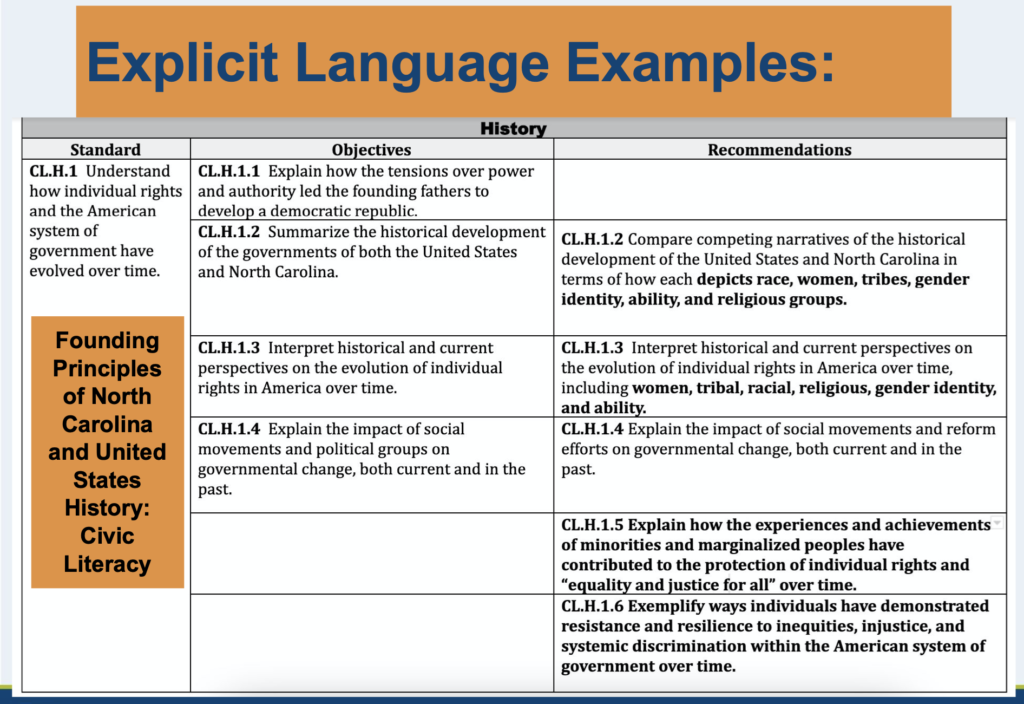

And here is what they look like now under the revisions:
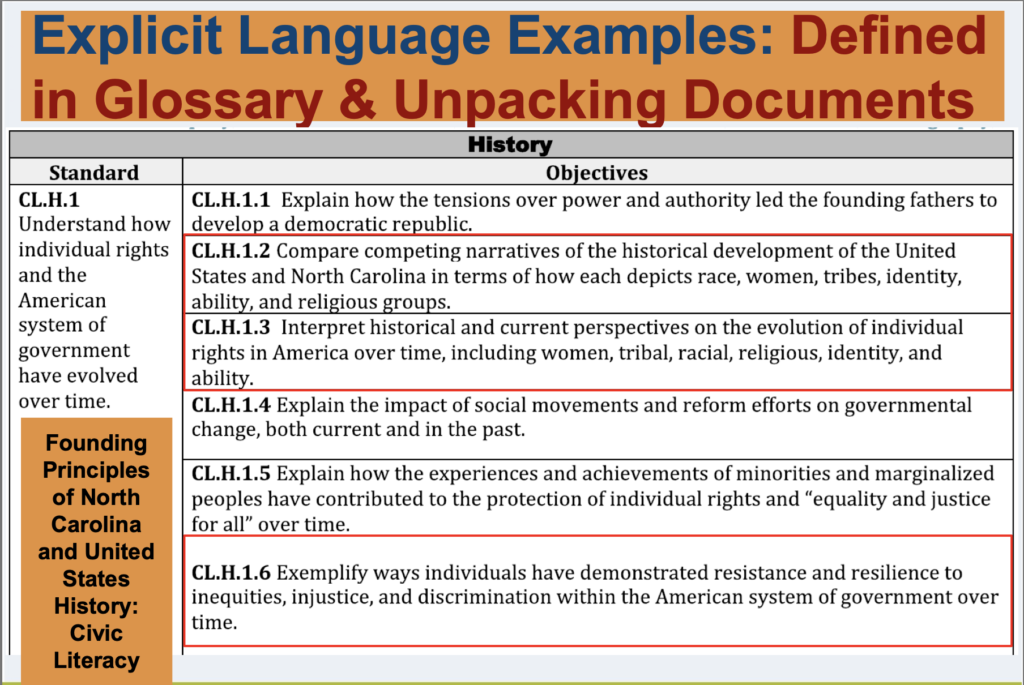

Here are the definitions of the revised terms discussed in today’s meeting:
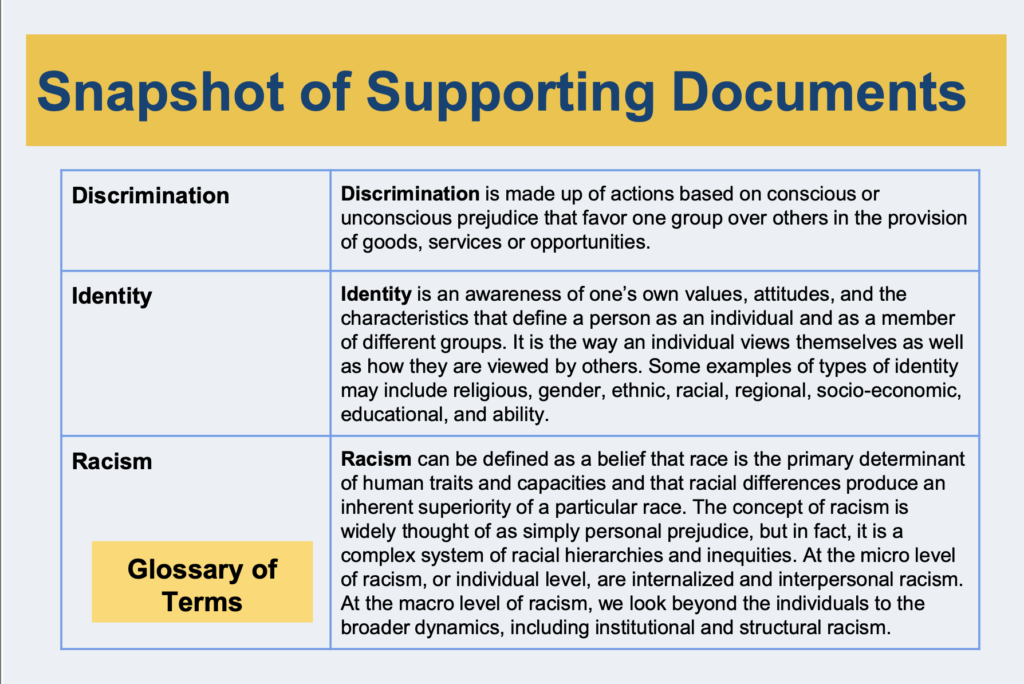

While the Board is only voting on the standards, the presentation also included supporting documents, which Camnitz said are important to understanding how the standards will be implemented.
The supporting documents have been revised from earlier this month as well. Here is an example of a supporting document as originally proposed in early January:
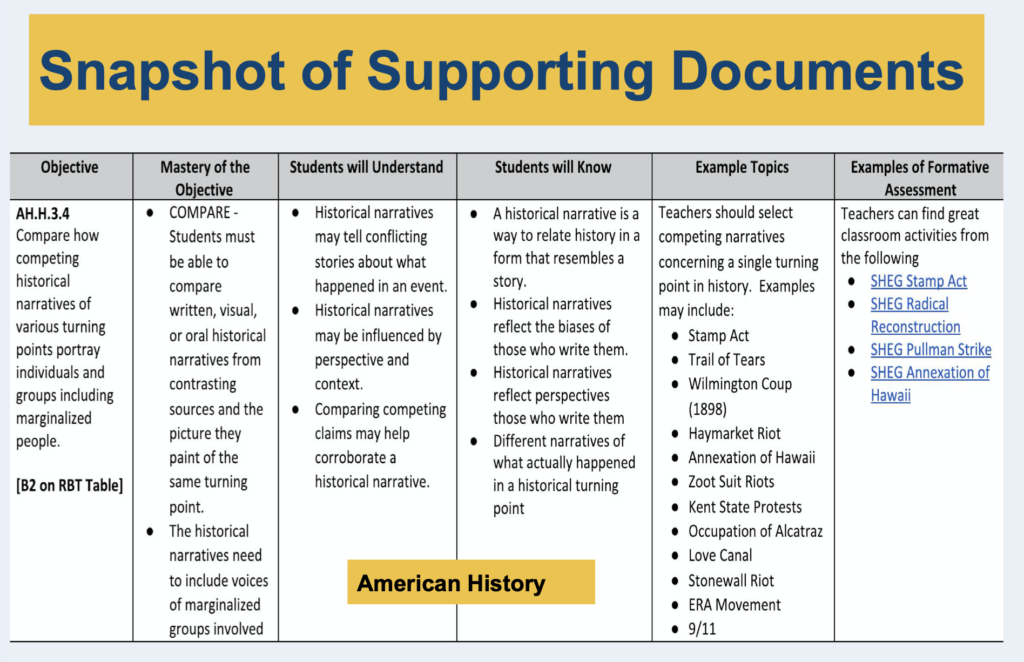

And here it is after the revision:
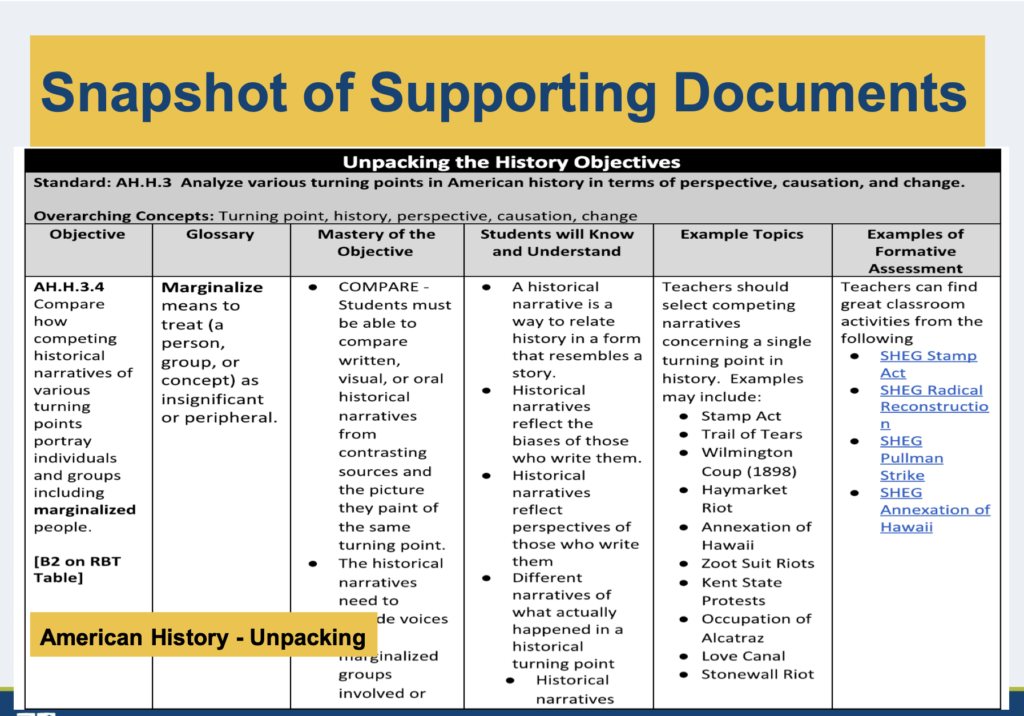

Here is the full presentation on the social studies standards:
Robinson also took issue with the scheduling of today’s State Board meeting in an article in the North State Journal this morning. He said that the meeting was knowingly scheduled to conflict with his duties as president of the Senate.
The State Board meeting started at 11 a.m., and the Senate was scheduled to convene at noon. Robinson was on the conference call and participated in the discussion on the standards. The State Board isn’t scheduled to vote on the standards until February’s Board meeting.
Emails to Robinson and his chief of staff weren’t returned. The website for the lieutenant governor does not include an email or a phone number on its contact page.
In another article this evening, Robinson told the North State Journal that he attended the Board meeting instead of presiding over the Senate.
The State Board will meet again next week for its regularly scheduled February meeting.


